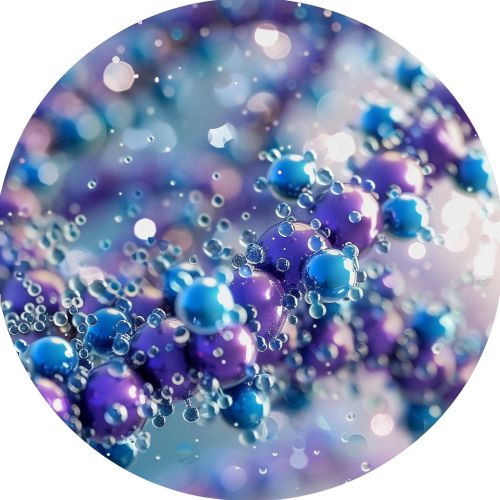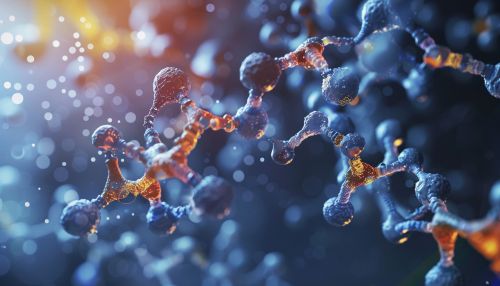Malate Dehydrogenase
Introduction
Malate dehydrogenase (MDH) is an enzyme that plays a crucial role in the citric acid cycle, also known as the Krebs cycle or the tricarboxylic acid cycle. This enzyme is found in nearly all living cells, where it catalyzes the conversion of malate into oxaloacetate, using nicotinamide adenine dinucleotide (NAD+) as a cofactor. This reaction is a part of the larger process of cellular respiration, which is responsible for the production of energy in the form of adenosine triphosphate (ATP).


Structure
Malate dehydrogenase is a homodimeric protein, meaning it consists of two identical subunits. Each subunit is composed of about 300 amino acids, and the overall structure of the enzyme is highly conserved across different species. The active site of the enzyme, where the catalytic reaction takes place, contains a binding site for the malate substrate and a separate binding site for the NAD+ cofactor.
Function
The primary function of malate dehydrogenase is to catalyze the reversible conversion of malate into oxaloacetate. This reaction is an integral part of the citric acid cycle, which is a series of chemical reactions used by all aerobic organisms to generate energy. In addition to its role in the citric acid cycle, malate dehydrogenase also plays a role in other metabolic pathways, such as the malate-aspartate shuttle, which is involved in the transfer of reducing equivalents across the mitochondrial membrane.
Isoforms
There are two main isoforms of malate dehydrogenase: cytoplasmic malate dehydrogenase (cMDH) and mitochondrial malate dehydrogenase (mMDH). These isoforms are encoded by separate genes and have different cellular locations. cMDH is found in the cytoplasm and is involved in the malate-aspartate shuttle, while mMDH is located in the mitochondria and is involved in the citric acid cycle.
Clinical Significance
Alterations in the activity or expression of malate dehydrogenase have been associated with several diseases, including cancer and neurodegenerative disorders. For example, increased expression of MDH has been observed in certain types of cancer, suggesting that this enzyme may play a role in tumor growth and progression. Additionally, mutations in the gene encoding MDH have been linked to a rare genetic disorder known as Malate Dehydrogenase Deficiency, which is characterized by developmental delay, seizures, and other neurological symptoms.
